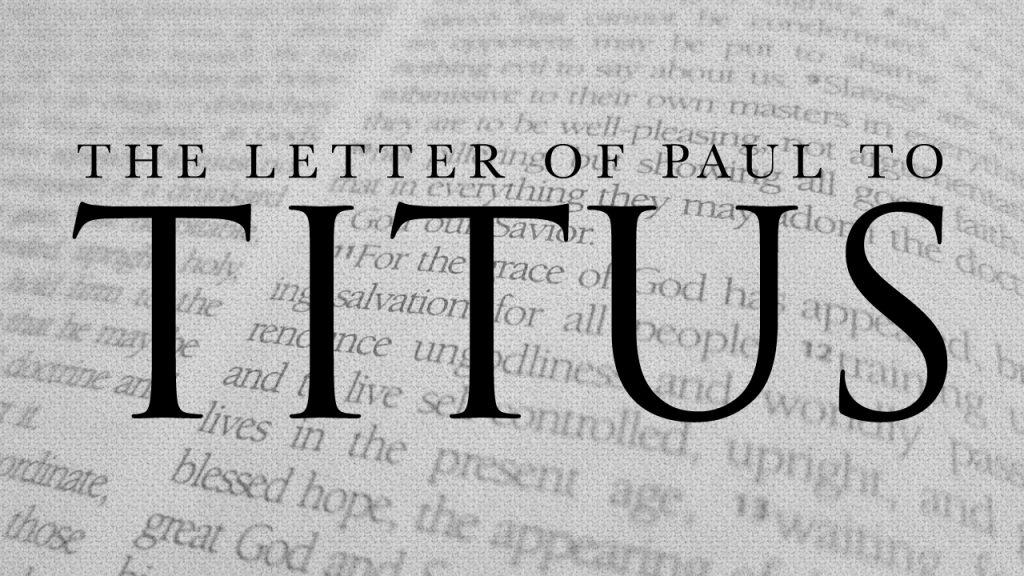We begin our study of Titus tonight. This first chapter should sound very familiar. The chapter repeats the teachings throughout the books of Timothy comparing the character of false teachers with those of orthodox leadership. (See, 1 Tim. 1:3-7, 1 Tim. 3:1-13, 2 Tim. 2:23-26). The false teacher’s mind and conscience are corrupted. (v.15). This corruption necessarily leads to disobedience and insubordination (v.10, 16). Therefore, the false teachers’ message is empty, deceitful, and based upon fabrications. (v.11, 14). The result of this is discord within the community. (v.11). On the other hand, the true leaders have a mind rooted in sound doctrine. (v.9). The leader’s life will reflect this grounding. (v.7-8). This is a very similar teaching to Jesus’ lesson in the Sermon on the Mount that you know a tree by its fruit – for grapes are not gathered from thorns or figs from thistles. Matt. 7:15-20. The key is whether a person’s mind and conscience have been formed correctly. A more in-depth discussion of this point can be found in Chapter 8 “Medical Imagery in the Pastoral Epistles” of Abraham Malherbe’s Paul and the Popular Philosophers. (In 2016, we used excerpts from this book in our study of 1 & 2 Thessalonians.)
Dinner is at 6. The menu is meatloaf. Discussion at 6:45. Hope to see you here.
Even now the axe is laid to the root of the trees; every tree therefore that does not bear good fruit is cut down and thrown into the fire. Matthew 3:10


Pingback: 1 Peter 5 – Church Leadership – Ancient Anglican